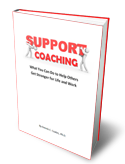 |
| Bustamante - sheriff's photo |
What did this teenager do to warrant a life sentence? Well, when she was 15, she lured 9-year-old Elizabeth Olten outside her home near Jefferson City, Missouri, then strangled her, stabbed her repeatedly in the chest, slashed her throat and wrists, and then buried her.
Why did she do this? One of the arresting officers said that the girl told him that she did it because she wanted to know what it felt like to kill someone.
Well, she found out. As she wrote in her diary, "It was ahmazing. As soon as you get over the 'ohmygawd I can't do this' feeling, it's pretty enjoyable. I'm kinda nervous and shaky though right now."
Her tone was different at the sentencing hearing. According to the report, she told the judge, "I know words can never be enough and they can never adequately describe how horribly I feel for all of this....If I could give my life to get her back I would. I'm sorry."
 |
| Bustamante - Facebook photo |
The traditional question adults ask teens when they do "crazy" things: "What were you thinking?"
The classic answer: "I don't know."
It turns out that this is an honest answer, not an evasive one. Not many people know that during adolescence, the part of the brain that handles judgment and decision-making is "under construction." In a real sense, it's a perilous time for teens. The brain's prefrontal cortex, which handles reasoning, judgment and decision-making, has just begun the process of development. To grow into adults who exercise good judgment, teens have to exercise the skills of good judgment - even though doing so is hard because the wiring isn't in place yet. It's very much like toddlers learning to walk, even though their brains don't yet have the neural pathways for walking. But with each faltering attempt, the toddler's brain cells are establishing the permanent connections for walking.
During her teen years, Alyssa seemingly wasn't making much progress in the reasoning department. She was born to a teenage mother who committed a series of petty crimes involving drug possession. At one point, her mother was arrested for driving while intoxicated. She had abandoned her children several times. Her father was in jail, serving a 10-year sentence for assault. An at-risk child, Alyssa's grandmother became her guardian. She was an above-average student, but after puberty, she expressed her feelings of hurt, anger and depression by harming herself. She even attempted suicide. This led to her wanting to harm her younger brothers. She was a highly emotional teen girl who had few adults in her life who encouraged rational thinking. Instead of ingraining the patterns of rational thought, she ingrained the patterns of reacting emotionally. Very likely she didn't think about the consequences of killing Elizabeth Olten at all. All she was concerned with was how murdering someone would feel.
Once in custody, she continued to react emotionally. When she started to experience the consequences, she panicked and tried to harm herself.
In the short term, Alyssa is on her way to prison, where bad things happen. In the long-term, there's little chance that she'll mature into an adult who is adept at exercising good judgment. The foundation for critical thinking is established during adolescence. After that, the window of opportunity closes; and while an adult can continue learning, intellectual growth will be limited by this foundation. The first six years of Alyssa's adolescence mostly reinforced patterns of emotional thinking. In prison, there's not much hope that her final six years of adolescence will change that.
Teens often do crazy things, and what Alyssa did certainly fits that description. But teens aren't crazy, and neither was Alyssa. She was a typical but unfortunate kid who, instead of working on learning to think, worked on acting out the goth culture. It's a tragic story of a teen journey gone bad. She failed to make the most of the cards she was dealt. Kids who grow up with the advantages of unconditional love, mentoring and character-building activities have a far better chance of surviving the teen years, programming a robust prefrontal cortex, and becoming the kind of mature adults who build happy, successful lives.
But a version of Alyssa's journey into hell could happen to any teenager. It's a cautionary tale for parents.
Post by Dennis E. Coates, Ph.D., Copyright 2012. Building Personal Strength .






2 comments:
Thanks Dennis for this insightful and compassionate post. Another aspect that troubles me: Alyssa was given SSRIs after her suicide attempt - at age 13, I think. SSRIs are not recommended for teenagers, due to adverse effects. In some cases, they become homicidal (cf. Justice Robert Heinrich of the Manitoba Justice Department). I believe Alyssa was still taking them when the murder occurred.
I think her story is incomplete without that information. I see your Ph.D. - do you have any insight regarding teen use of SSRIs?
Thanks again,
j. Scaife
Depression can be a reaction to adverse external conditions, and it can be aggravated by underdeveloped cognitive ability. Also, depression can be the result of chemical imbalance. What was going on in Alyssa's case is unknown. I think drugs are overused with teens, because their behavior is often anti-social and adults don't understand the cause or what to do. But anti-depressant drugs are the only solution to a chemical imbalance. Studies don't confirm that teens become more homicidal when taking SSRIs. If some teens have became more homicidal after taking SSRIs that doesn't mean the SSRI was the cause.
Post a Comment